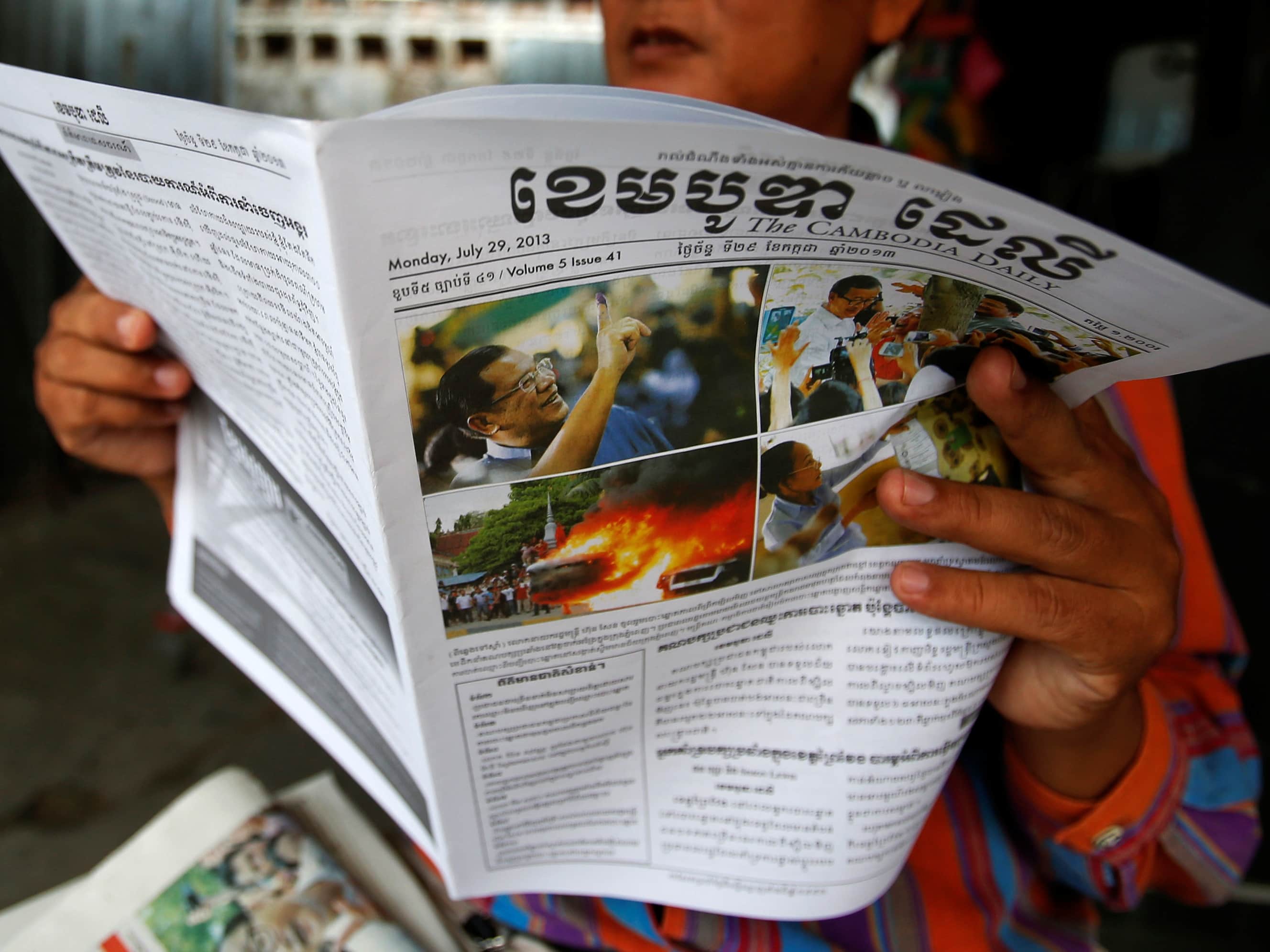A new report demonstrates how freedom of expression in Cambodia has deteriorated, while also acknowledging that the increasing use of new media to spread free and fair information, as well as the lack of self-censorship by opposition party supporters around the elections, give cause for hope.
On 19 September 2013, the Cambodian Center for Human Rights’ (“CCHR”) Cambodian Freedom of Expression Project released a report entitled “Repression of Expression: The State of Free Speech in Cambodia” (the “Report”). As a follow up from the 2010 joint report facilitated by CCHR entitled, “Cambodia Gagged: Democracy at Risk”, the Report demonstrates how freedom of expression has deteriorated in comparison to previous years, while also acknowledging that the increasing use of new media to spread free and fair information, as well as the lack of self-censorship demonstrated by opposition party supporters surrounding the 2013 national elections, give cause for hope that the situation is on the brink of positive change.
The Report outlines the legislative landscape in relation to freedom of expression in Cambodia – both positive and negative; it describes different forms of censorship of traditional media versus the relative freedom of new media; and it discusses restrictions placed on civil society as well as other important groups such as university students, lawyers and opposition politicians. The aim of the Report is to identify patterns of violations of the right to freedom of expression before providing concrete and specific recommendations to the Royal Government of Cambodia (“RGC”) in order to bring about improvement in the situation. It will be used as an advocacy tool to engage the Cambodian public as well as different stakeholders, such as national and international organizations, embassies and of course, the newly elected RGC.
CCHR Cambodia Freedom of Expression Project Coordinator Sorn Ramana comments:
“Restrictive legislation, media censorship and the attempts at stifling civil society show that the situation of freedom of expression in Cambodia remains dire. However, it feels like over the 2013 election period, a veil of self-censorship has been lifted and Cambodian people have begun to exercise their right to free speech and demand for change. The increased use of the Internet has also meant that uncensored, independent news and debate have been reaching more and more Cambodians, who are becoming increasingly engaged. So, we have reason to be hopeful. Now it is up to the newly elected government to commit to the necessary reforms and policies, as outlined in the recommendations contained in this Report, in order to bring about lasting improvement in the situation of freedom of expression and of human rights in general in Cambodia.”



